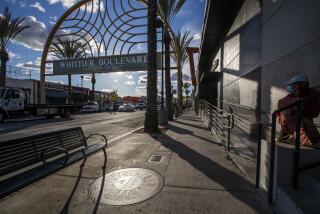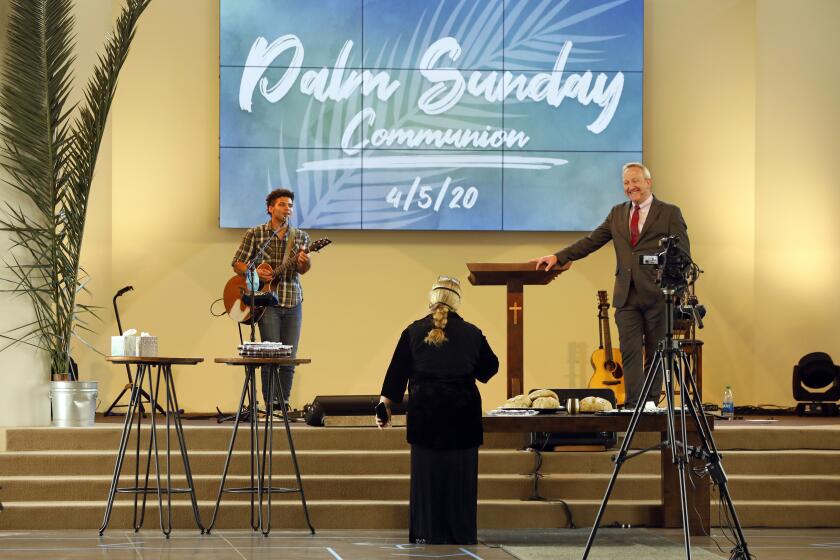In storied New England mill city, Cambodian Americans make political history
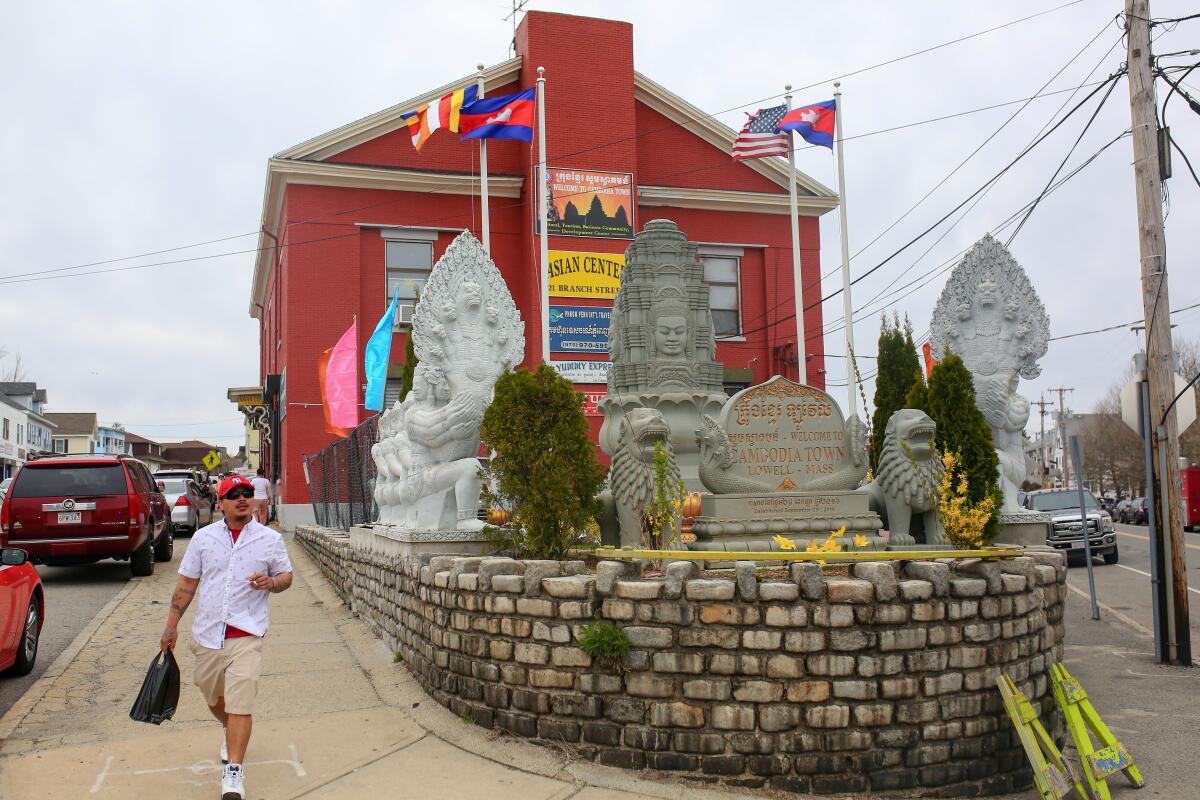
LOWELL, Mass. — For two centuries white men dominated this New England textile mill city, many ruling from the handsome Belvidere neighborhood overlooking the Merrimack River valley.
Lowell, Mass., sits in the cradle of the American Industrial Revolution, home to some of the nation’s first large-scale factories — powered by cascading rivers and staffed initially by thousands of young, unskilled farmers’ daughters, dubbed mill girls, who captivated Charles Dickens during his 1842 visit.
In later decades, the Colonial town welcomed wave after wave of immigrants — Irish, Greek, French Canadian, Portuguese — to work its mills. Lowell earned a reputation as a gateway city for new arrivals, one that embraced immigrants, albeit not sharing the power.
Then came thousands of Cambodians who escaped the killing fields in the 1970s.
Now totaling about a fifth of Lowell’s population, these traumatized, hard-working refugees and their American-born children became the first nonwhite group to break the local power structure.
In recent years, the Cambodian community took the lead in transforming a city council that had been all-white for nearly its entire history into an 11-member panel that includes three Cambodians and one Black councilor. It, in turn, elected the city’s first mayor of color.
Up until the municipal election last November, it was inconceivable that a former small-business owner named Sokhary Chau would lead the government of this historic city, about 25 miles northwest of Boston.
Chau, 49, remembers how incredulous he felt when every eye in the room followed him the first time he walked up to the mayor’s podium in January.
Excited but nervous, he forgot the traditional banging of the mayor’s gavel as he called the meeting to order.
“I felt the full weight of being the first Cambodian American mayor,” Chau said.
At a time when Asian Americans are facing hostility in many parts of the country, Lowell’s Cambodian community is up and coming — thanks in large part to its perseverance, help from public interest attorneys from Boston and painstaking alliance-building with Lowell residents and other disenfranchised groups, who now are also benefiting from the city’s dramatic changes.
They pushed for and won a new system of electing most officials by district, replacing the at-large process that had kept Lowell’s white community in control, even as the white population declined and last year dipped below 50%.
It’s a quintessential American story, touching on the struggle of immigrants, overcoming racial divisions and even the decline of U.S. manufacturing. Cambodians across the country have taken notice.
“I’m really excited that we’re entering positions of power,” said Sevly Snguon, 29, an immigrant-rights organizer and son of refugees in Long Beach, Calif., home to the largest Cambodian community in the U.S. Lowell is second.
“We have people now on the decision-making side who understand our diaspora and our needs, and can advocate for us,” Snguon said.
Chau arrived in Lowell in the 1980s, as did many Cambodians, after years at refugee camps in Thailand or the Philippines. “We went through the war, lived through the killing fields and pretty much lost our history because of being uprooted,” he said.
What they did have was a capacity for hard work, a little chutzpah and a high degree of community cohesiveness. They also got support from experienced social welfare organizations, which Lowell had built up over decades to help settle new arrivals.
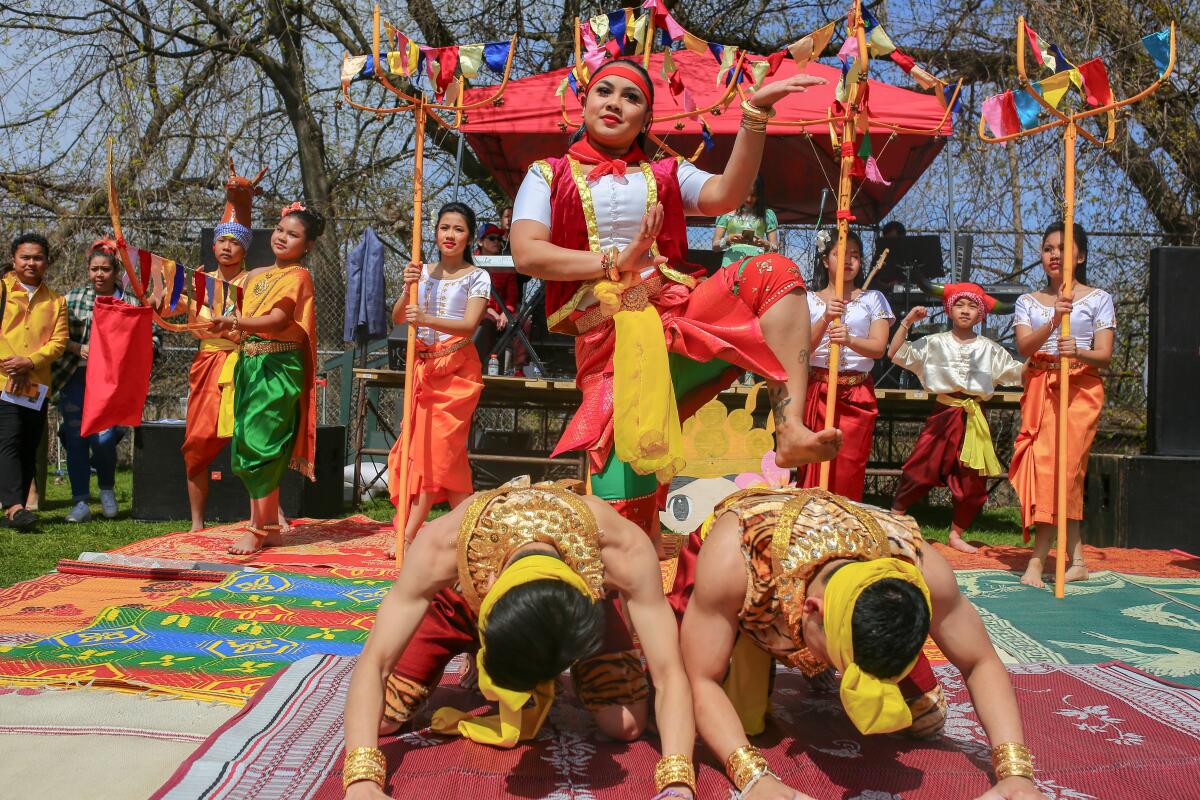
By the latest government count, Asians make up 21% of Lowell’s population of 115,550, although people here say the Khmer community, as the Cambodian language and old kingdom are called, is probably larger.
Latinos account for almost 18% of Lowell’s population and Black people about 9%.
The at-large voting system had long enabled a coalition of earlier European immigrants and their descendants to dominate.
“It was kind of like, you had to play a political game with the more affluent sections of the city to even be considered,” said Corey Robinson, 44, elected as Lowell’s first Black councilor in November.
For years Lowell’s nonwhite communities had been murmuring about the neglect and lack of representation from City Hall.
That’s where the Boston lawyers came in.
On a December night in 2016, Cambodian leaders, professors from the University of Massachusetts Lowell and heads of nonprofits were among 30 people from communities of color gathered at the home of Sovanna Pouv and his wife, Lianna Kushi.
Kushi is a community activist and Pouv at the time was director of the nonprofit Cambodian Mutual Assistance Assn. of Greater Lowell.
The attorneys, led by Oren Sellstrom of Lawyers for Civil Rights, had already made the rounds, explaining how they had sued other cities over their at-large voting systems.
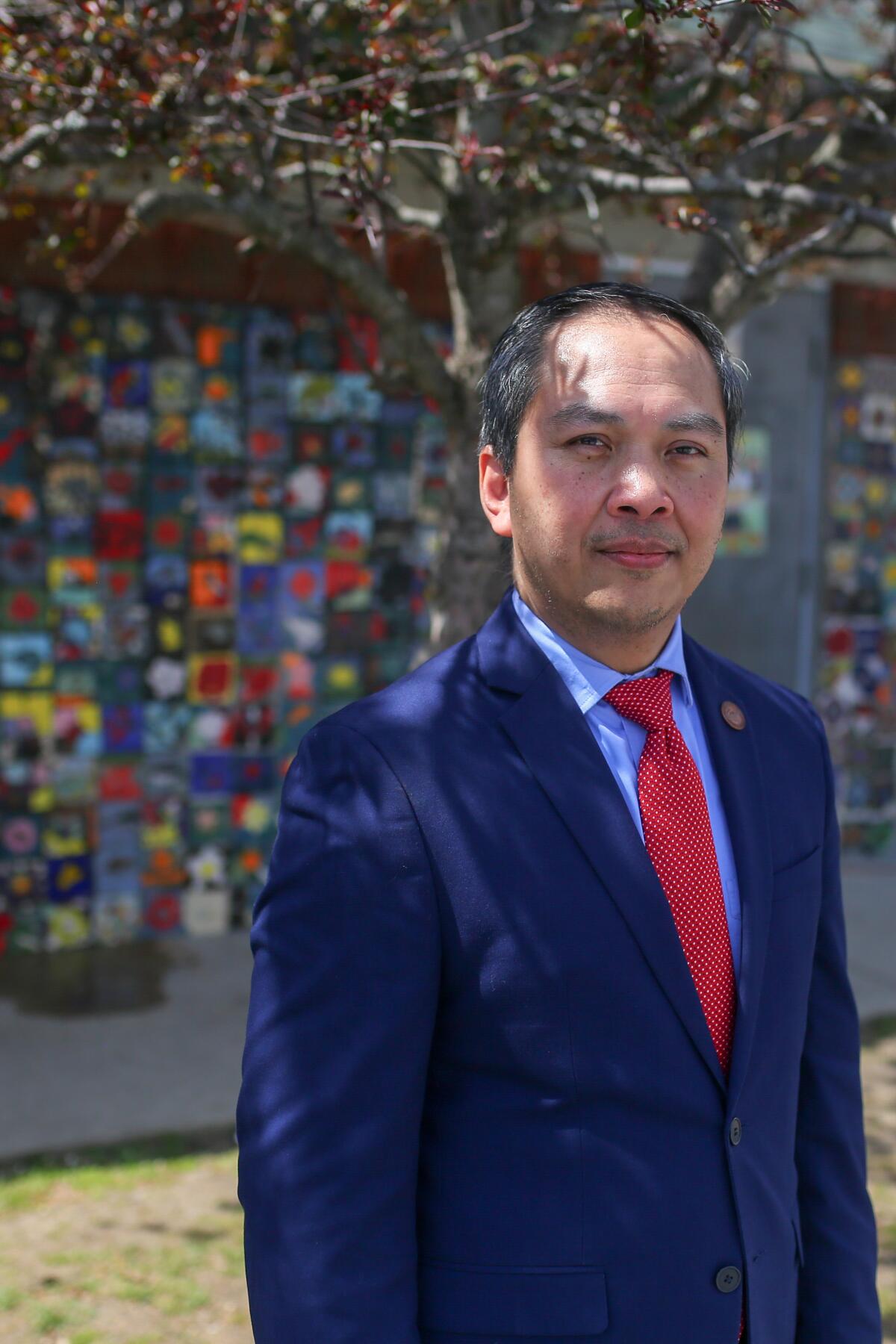
Despite deep language, cultural and other divisions, those who gathered that night began building coalitions. The Khmer community’s most influential nonprofit, the Cambodian Mutual Assistance Assn., is a financial supporter of the Latinx Community Center for Empowerment.
Six months later, attorneys for Kushi and a dozen other Asians and Latinos filed the suit, asserting that the existing system violated the 1965 Voting Rights Act and the equal protection clause of the Constitution.
In 2019, the city settled, agreeing to replace the election system and pay plaintiffs’ legal expenses. Starting in 2021, the council would be made up of eight district and three at-large seats.
Last November’s election transformed not just the council, but the elected committee that oversees schools. Of the seven committee members, three are Cambodian, including Chau, and one is Black.
Lowell’s white leaders, several of whom were swept out of office, acknowledged that the city’s political structure was behind the times.
“I knew we had to make some changes, but it was like, we’ll make the changes at some point,” said William Samaras, 80, Lowell’s mayor during the lawsuit period. Besides, he said, it would have been too costly to keep fighting the lawsuit. Samaras was one of three incumbents who lost.
Rodney Elliott, 61, had been on the City Council for 24 years, including two years as mayor. “While I was one of the first casualties of the new system, I’m glad it has taken place,” said Elliott, a Lowell native with French Canadian and Irish roots. “I think it’s important to have neighborhood representation.”
There are already signs that some of the old favoritism is on the wane.
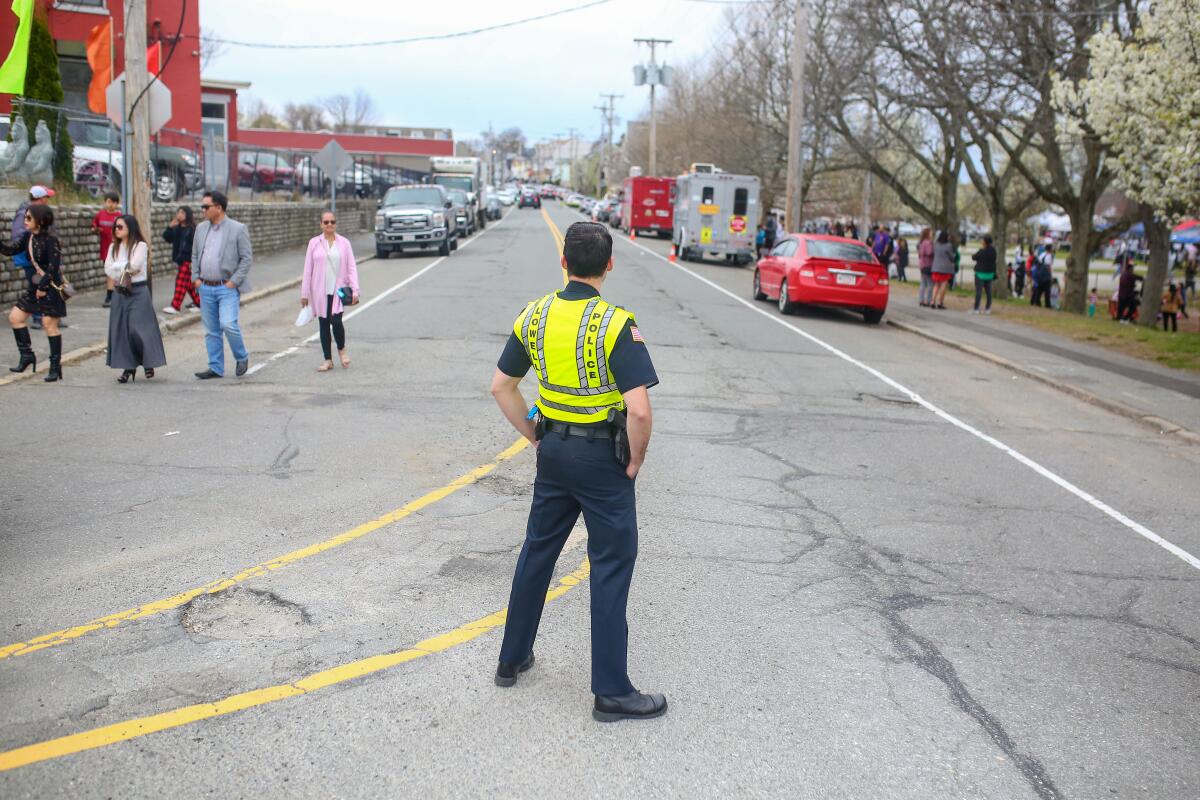
Robinson said a draft proposal for spending $16 million of federal money for parks had earmarked more than $9 million for Belvidere, with other areas sharing the rest.
“There’s no way” that lopsided split will survive in the new council, Robinson said, arguing that the funds should be divided equally in the eight districts.
“The focus for me is the issue of equity, in education, housing, as well as how to make sure the city’s workforce and commissions reflect the population,” said Vesna Nuon, 58, who was the top vote-getter among all councilors.
Nuon noted that Lowell didn’t get its first Cambodian American police officer until 1997. Even today, only about 5% of the police force is Asian American. And in 1989, white residents led a successful effort to pass an English-only referendum.
Before the redistricting, Paul Ratha Yem ran for City Council in 2015 and 2017, and fell short both times.
“My last name is not like McDonald, O’Connor or Kennedy,” Yem said.
In 2021 he ran to represent the traditional immigrant neighborhood, now heavily Latino and home to Southeast Asians. Yem won by 69 votes, defeating David Ouellette, whose French Canadian surname is known by everyone crossing the Ouellette Bridge.
Yem, 69, is among the educated class of the refugees that gave the community a leg up in business and politics. He fled Cambodia in 1975 when Pol Pot and his brutal Khmer Rouge forces took control of the country. Yem lost his father, mother, aunt, uncle, grandmother and two cousins during the war, to murder, starvation and illness.
In 1981, after two years in Southern California, he went to Revere, north of Boston, to work for a relief agency serving Southeast Asian refugees.
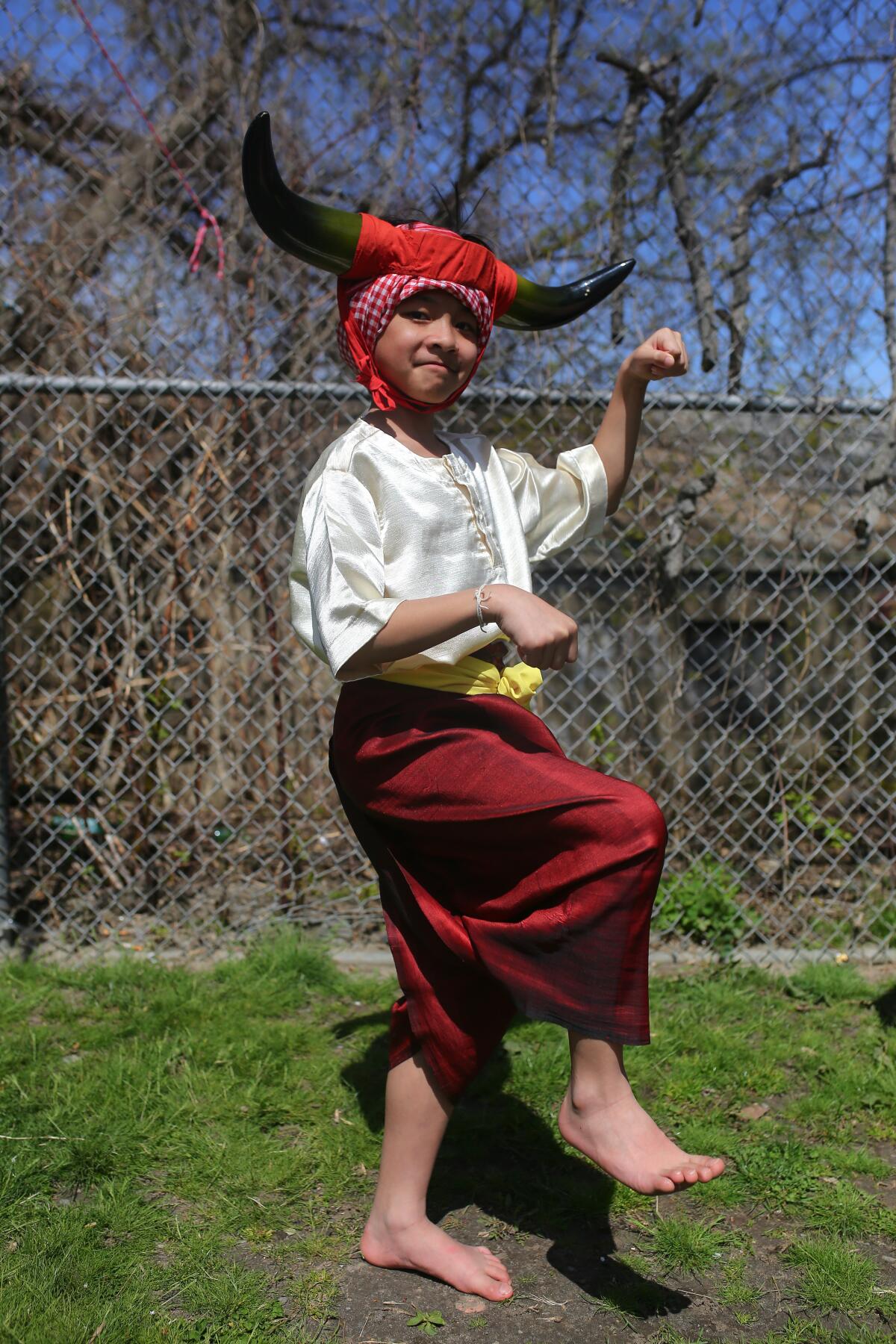
Back then, as in recent years, there were rising incidents of violence targeting Asian Americans, a reaction in part to the manufacturing troubles at home and the economic ascendance of Japan. Yem remembered being called on Christmas Eve in 1986, when several Cambodian families were left homeless after their building was firebombed.
But Yem thinks Lowell has been an easier place for Southeast Asians to succeed because of the city’s long history of welcoming immigrants; monuments surround City Hall, honoring Cambodians, Laotians, Armenians and Lithuanians, as well as Irish and others from Europe. More recently, Lowell and nearby towns have received hundreds of Afghan evacuees and expect to help resettle Ukrainians.
Yem said that although many Cambodian families here and across the country are still struggling, “now Lowell has become a model that other Cambodian communities can learn from.”
And not necessarily just for Cambodians. Robinson hopes younger adults in the Black community will become “more engaged, more involved.”
Maria Aybar, a Dominican Republic native and operations manager for the Latinx Community Center, holds similar aspirations for her community. Latinos have had few political successes here, reflecting what experts say are more divisions and other leadership challenges for a culturally diverse and more transitory community.
Not a single Latino ran for City Council last November. “It’s a question we ask ourselves a lot,” said Aybar, 26.
The Cambodians in Lowell had the good fortune of better timing and broader political support. Then-Massachusetts Gov. Michael Dukakis and his wife, Kitty, were big supporters of resettling Southeast Asian refugees.
“So not only did you have organizations, you also had political will,” said Phitsamay Uy, a UMass-Lowell education professor and herself a refugee from Laos. That’s partly why the community found it easier to advance in Lowell, compared with places such as Long Beach, which elected its first Cambodian American councilmember, Suely Saro, in 2020.
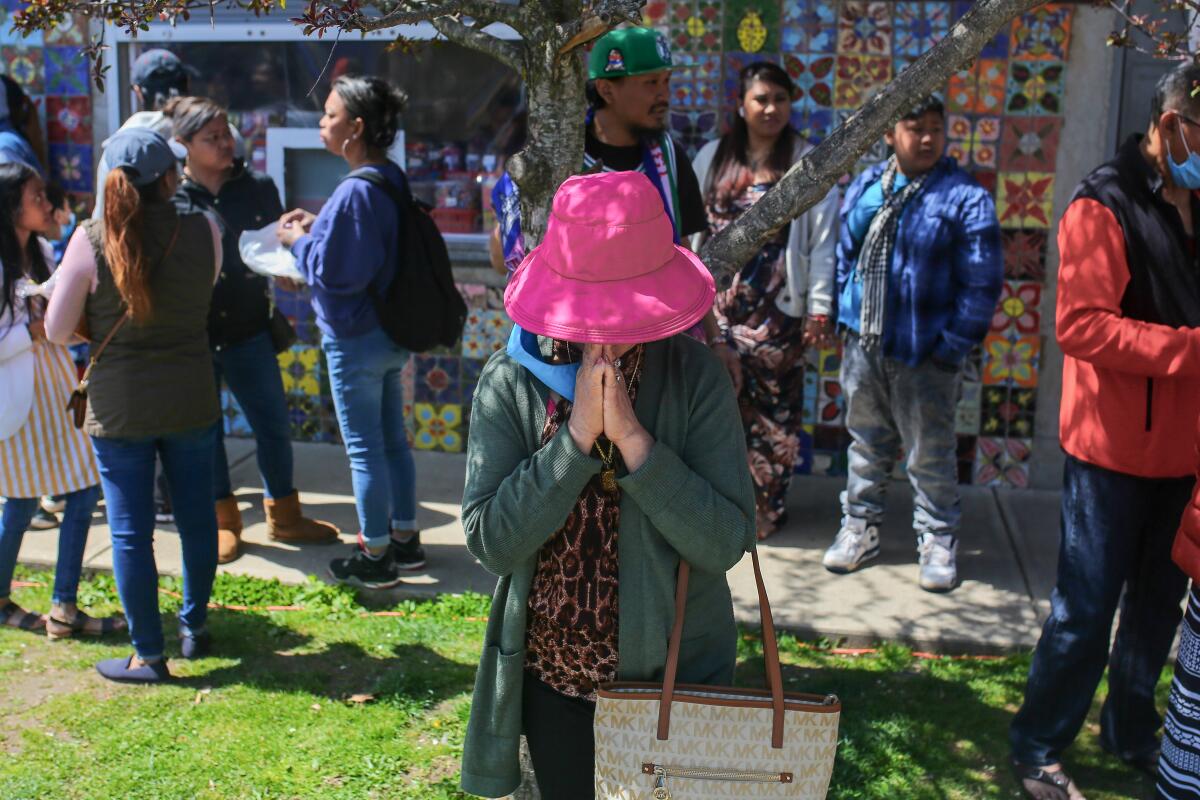
Even with the assistance and many finding employment at the now-defunct Wang computer company’s plants here, the newcomers endured poverty and the challenges of starting over.
Richard P. Howe Jr. witnessed their hardships firsthand when he accompanied his father, then Lowell’s mayor, to one of the packed buildings that housed Cambodian families in the 1980s.
“We went in, and it was like on each floor, every room had cloth partitions, like blankets held from the ceiling, subdividing it into multiple residents’ cubes. And there would be huge bags of rice, and it was clear that there was just an awful lot of people living in this one house,” Howe recalled.
Even so, “no immigrant group achieved homeownership faster than Cambodians,” said Howe, register of deeds for the Lowell area.
Though it is a close-knit community, there are differences — and they are coming to the surface now that Cambodians enjoy more political power.
Some Khmer community leaders want Chau to speak out against Hun Sen, Cambodia’s longtime autocratic ruler. They include Rithy Uong, 61, a former school guidance counselor who helped quiet Lowell’s youth gang problem in the 1990s and was elected as the first Cambodian to the City Council under the old system in 1999.
“It doesn’t take that much work to fix stoplights and fill the potholes,” Uong said. “We have to do [what’s] more valuable and meaningful for democracy.”
Chau says his mission is to do a “good job for my fellow residents,” not to wade into homeland politics. “I’m not a U.S. senator or congressman,” he said.
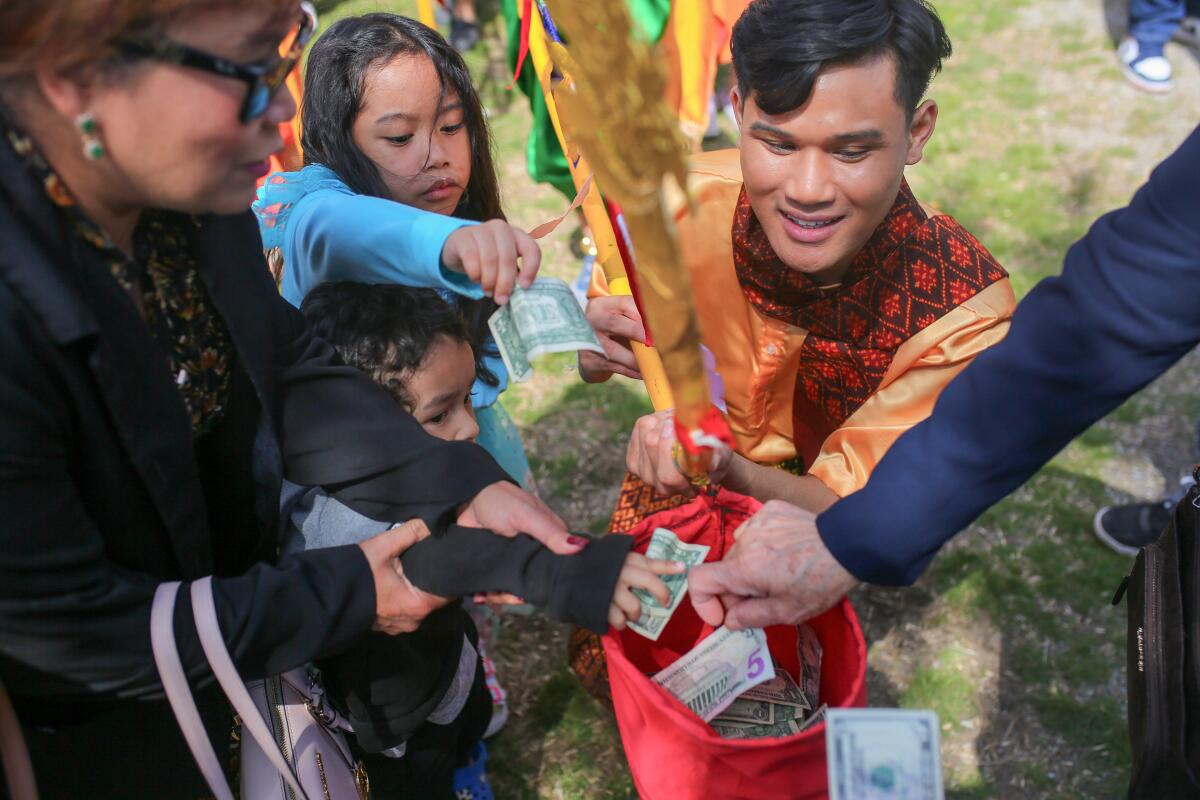
Chau came as a 9-year-old in 1981, and doesn’t remember much about Cambodia, except that his family made a perilous escape. His mother had kept her seven children alive for four years, surviving land mines and jungles. His father, a captain in the Cambodian army, was executed by the Khmer Rouge.
While Chau’s siblings worked in local factories, he excelled in school, earning scholarships to the exclusive Phillips Academy in nearby Andover, and then Macalester College in Minnesota.
Chau said he had never thought about entering politics, but felt he could be a bridge linking elder Cambodians and the younger generation that includes his two teenage sons.
On a recent Tuesday evening, he sat at his desk in City Hall, preparing for a long night of meetings. Behind him were pictures of his gray-haired mother, who died two weeks after his election victory, and of his young-looking father in uniform.
“I feel strongly that it’s time for the Cambodian community,” he said.
Later, Chau recalled that first City Council meeting in January, when he didn’t rap the mayor’s gavel. No more.
“Now,” he said, “I use the gavel to get their attention.”
More to Read
Get the L.A. Times Politics newsletter
Deeply reported insights into legislation, politics and policy from Sacramento, Washington and beyond. In your inbox three times per week.
You may occasionally receive promotional content from the Los Angeles Times.


